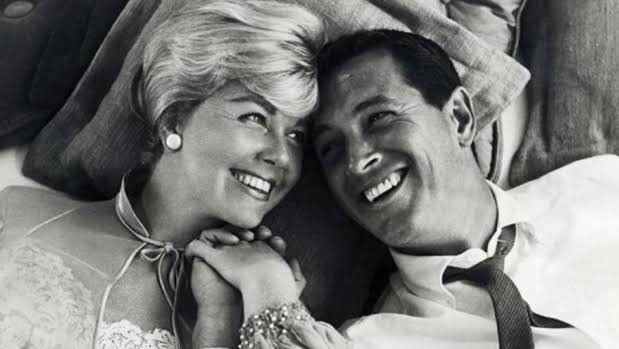Through Doris Day, America was able to view AIDS with compassion and…
In the 1950s and 1960s, Doris Day and Rock Hudson rose to fame as the leads in a number of romantic comedies. Decades later, in 1985, however, their combined appearance may have been their most significant. Day requested Hudson to appear as her first guest on her upcoming cable TV show on dogs. Hudson had AIDS by that point. Though there had been some speculation regarding his health, the world would see Hudson’s state of illness for the first time at a press conference in Day’s hometown of Carmel Valley, California.
The footage would play a crucial role in the American public’s comprehension of acquired immune deficiency syndrome. It also marked the start of a protracted fight against prejudice and intolerance for the illness. The Times published Day’s obituary on Monday, and it details how that appearance came together. Day passed away on Monday.
Day subsequently claimed that Hudson was a natural first guest because he shared her passion of dogs. However, the press corps and Day were taken aback by his scrawny appearance when he arrived in Carmel in mid-July for filming and a news conference. Although Hudson was suffering from AIDS and had not disclosed his illness to Day or the public, reporters quickly ascertained that he was in critical condition. Later on, he would grudgingly confess to having AIDS, making history as one of the first well-known figures to do so.
Hudson insisted on filming the show even though he was tired, and it eventually aired a few days after his death in October 1985. Day recorded an introductory speech in which she described how Hudson used to tell her, “The best time I’ve ever had was making comedies with you,” in an overly emotional voice. She expressed that feeling. Day later revealed to People magazine that Hudson was unable to eat lunch because of his illness. She claimed that they shared a tearful farewell after the shoot. “We said our goodbyes with a kiss, and he hugged me tightly and held on to me.” I was crying. She told the magazine, “That was the last time I saw him, but he’s in heaven now.”
Columnist Howard Rosenberg of Times TV criticized the media for the way they reported on Hudson’s condition, pointing out repeatedly that they showed Day and Hudson together during the news conference: A hint of humor was present in part of the reporting when it came to the possibility that Hudson had the fatal acquired immune deficiency syndrome (AIDS), an enigmatic disease that primarily affects gay men in the US.
Hudson, being a Hollywood institution, is always in the headlines. However, it is difficult to believe that if the story had only involved Hudson’s fatal sickness, the media would not have become so enraged. A tragedy, indeed. Not sensational, though. However, terminal AIDS? Alright! If Hudson, the TV and film he-man who consistently landed the gorgeous female, had AIDS… Well, the details could be filled in without the help of a sleaze from the National Enquirer.
When Atlantan anchorman Reid Collins questioned Hollywood writer Sandy Kenyon about whether Hudson was considered a “likely candidate” — oh no — for AIDS, he appeared to be mentally wriggling a little. Kenyon brought up the persistent gossip around Hudson. According to Kenyon, “it was widely assumed for many years that Rock Hudson was gay.” “Anyone who knows said that Rock Hudson is either number one or number two when this reporter asked, ‘Who is gay?'”














